Related Research Articles

Rudolf Emil Kálmán was a Hungarian-American electrical engineer, mathematician, and inventor. He is most noted for his co-invention and development of the Kalman filter, a mathematical algorithm that is widely used in signal processing, control systems, and guidance, navigation and control. For this work, U.S. President Barack Obama awarded Kálmán the National Medal of Science on October 7, 2009.

Robert Gray Gallager is an American electrical engineer known for his work on information theory and communications networks.

Elwyn Ralph Berlekamp was a professor of mathematics and computer science at the University of California, Berkeley. Berlekamp was widely known for his work in computer science, coding theory and combinatorial game theory.
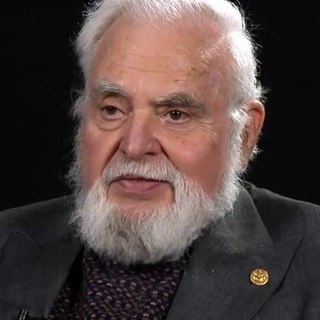
Solomon Wolf Golomb was an American mathematician, engineer, and professor of electrical engineering at the University of Southern California, best known for his works on mathematical games. Most notably, he invented Cheskers in 1948. He also fully described polyominoes and pentominoes in 1953. He specialized in problems of combinatorial analysis, number theory, coding theory, and communications. Pentomino boardgames, based on his work, would go on to inspire Tetris.
Thomas Kailath is an Indian born American electrical engineer, information theorist, control engineer, entrepreneur and the Hitachi America Professor of Engineering emeritus at Stanford University. Professor Kailath has authored several books, including the well-known book Linear Systems, which ranks as one of the most referenced books in the field of linear systems.

Eduardo Daniel Sontag is an Argentine-American mathematician, and distinguished university professor at Northeastern University, who works in the fields control theory, dynamical systems, systems molecular biology, cancer and immunology, theoretical computer science, neural networks, and computational biology.
Roger Ware Brockett was an American control theorist and the An Wang Professor of Computer Science and Electrical Engineering at Harvard University, who founded the Harvard Robotics Laboratory in 1983.
John Comstock Doyle is the Jean-Lou Chameau Professor of Control and Dynamical Systems, Electrical Engineering, and BioEngineering at the California Institute of Technology. He is known for his work in control theory and his current research interests are in theoretical foundations for complex networks in engineering, biology, and multiscale physics.
Michael Athans was a Greek-American control theorist and a Professor Emeritus in the Department of Electrical Engineering and Computer Science at the Massachusetts Institute of Technology. He was a Fellow of the IEEE (1973) and a Fellow of the AAAS (1977). He was the recipient of numerous awards for his contributions in the field of control theory. A pioneer in the field of control theory, he helped shape modern control theory and spearheaded the field of multivariable control system design and the field of robust control. Athans was a member of the technical staff at Lincoln Laboratory from 1961 to 1964, and a Department of Electrical Engineering and Computer Science faculty member from 1964 to 1998. Upon retirement, Athans moved to Lisbon, Portugal, where he was an Invited Research Professor in the Institute for Systems and Robotics, Instituto Superior Técnico where he received a honoris causa doctorate from the Universidade Técnica de Lisboa in 2011.
Ali H. Sayed is the dean of engineering at EPFL, where he teaches and conducts research on Adaptation, Learning, Statistical Signal Processing, and Signal Processing for Communications. He is the Director of the EPFL Adaptive Systems Laboratory. He has authored several books on estimation and filtering theories, including the textbook Adaptive Filters, published by Wiley & Sons in 2008. Professor Sayed received the degrees of Engineer and Master of Science in Electrical Engineering from the University of Sao Paulo, Brazil, in 1987 and 1989, respectively, and the Doctor of Philosophy degree in electrical engineering from Stanford University in 1992.
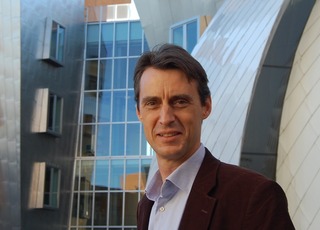
Vincent Daniel Blondel is a Belgian professor of applied mathematics and current rector of the University of Louvain (UCLouvain) and a visiting professor at the Massachusetts Institute of Technology (MIT). Blondel's research lies in the area of mathematical control theory and theoretical computer science. He is mostly known for his contributions in computational complexity in control, multi-agent coordination and complex networks.
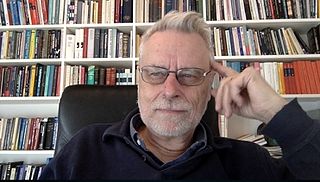
Anders Gunnar Lindquist is a Swedish applied mathematician and control theorist. He has made contributions to the theory of partial realization, stochastic modeling, estimation and control, and moment problems in systems and control. In particular, he is known for the discovery of the fast filtering algorithms for (discrete-time) Kalman filtering in the early 1970s, and his seminal work on the separation principle of stochastic optimal control and, in collaborations with Giorgio Picci, the Geometric Theory for Stochastic Realization. Together with late Christopher I. Byrnes and Tryphon T. Georgiou, he is one of the founder of the so-called Byrnes-Georgiou-Lindquist school. They pioneered a new moment-based approach for the solution of control and estimation problems with complexity constraints.
Stephen P. Boyd is an American professor and control theorist. He is the Samsung Professor of Engineering, Professor in Electrical Engineering, and professor by courtesy in Computer Science and Management Science & Engineering at Stanford University. He is also affiliated with Stanford's Institute for Computational and Mathematical Engineering (ICME).
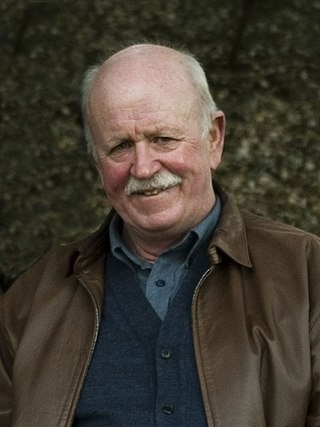
Arthur James Krener is an American mathematician. He is a distinguished visiting professor in the department of applied mathematics at the Naval Postgraduate School. He has made contributions in the areas of control theory, nonlinear control, and stochastic processes.
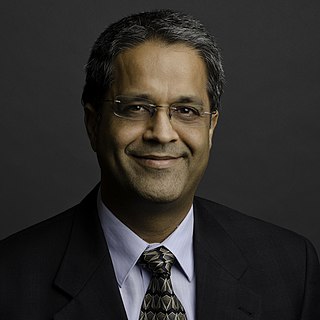
Inderjit S. Dhillon is the Gottesman Family Centennial Professor of Computer Science and Mathematics at the University of Texas at Austin, where he is also the Director of the ICES Center for Big Data Analytics. His main research interests are in machine learning, data analysis, parallel computing, network analysis, linear algebra and optimization.
Vivek Shripad Borkar is an Indian electrical engineer, mathematician and an Institute chair professor at the Indian Institute of Technology, Mumbai. He is known for introducing analytical paradigm in stochastic optimal control processes and is an elected fellow of all the three major Indian science academies viz. the Indian Academy of Sciences, Indian National Science Academy and the National Academy of Sciences, India. He also holds elected fellowships of The World Academy of Sciences, Institute of Electrical and Electronics Engineers, Indian National Academy of Engineering and the American Mathematical Society. The Council of Scientific and Industrial Research, the apex agency of the Government of India for scientific research, awarded him the Shanti Swarup Bhatnagar Prize for Science and Technology, one of the highest Indian science awards for his contributions to Engineering Sciences in 1992. He received the TWAS Prize of the World Academy of Sciences in 2009.
Igor Mezić is a mechanical engineer, mathematician, and Distinguished Professor of mechanical engineering and mathematics at the University of California, Santa Barbara. He is best known for his contributions to operator theoretic, data driven approach to dynamical systems theory that he advanced via articles based on Koopman operator theory, and his work on theory of mixing, that culminated in work on microfluidic mixer design, and mapping oil refuse from the Deepwater Horizon oil spill in the Gulf of Mexico to aid in cleaning efforts.
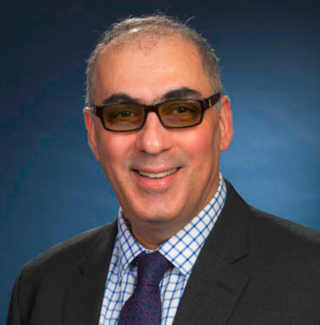
Michael A. Demetriou is a professor of aerospace engineering at the Worcester Polytechnic Institute in Massachusetts. He was named a Fellow of the Institute of Electrical and Electronics Engineers in 2015 for his contributions to estimation and optimization of distributed parameter systems.
Kirsten Anna Morris is a Canadian applied mathematician specializing in control theory, including work on flexible structures, smart materials, hysteresis, and infinite-dimensional optimization. She is a professor at the University of Waterloo, the former chair of the Society for Industrial and Applied Mathematics Activity Group on Control and Systems, the author of two books on control theory, and an IEEE Fellow.
Jacquelien Maria Aleida Scherpen is a Dutch applied mathematician specializing in nonlinear control theory. She is a professor in the faculty of science and engineering at the University of Groningen, director of the Groningen Engineering Center, and former scientific director of the Engineering and Technology Institute Groningen (ENTEG). She has been rector magnificus of the university since September 2023.
References
- ↑ "2012 elevated fellow" (PDF). IEEE Fellows Directory.
- ↑ "SIAG/Control and Systems Theory Prize". Society for Industrial and Applied Mathematics. Retrieved June 8, 2019.
- ↑ "Murat Arcak". University of California, Berkeley. 3 September 2018. Retrieved June 8, 2019.
- ↑ "SIAM Prizes Awarded" (PDF). American Mathematical Society. Retrieved June 8, 2019.